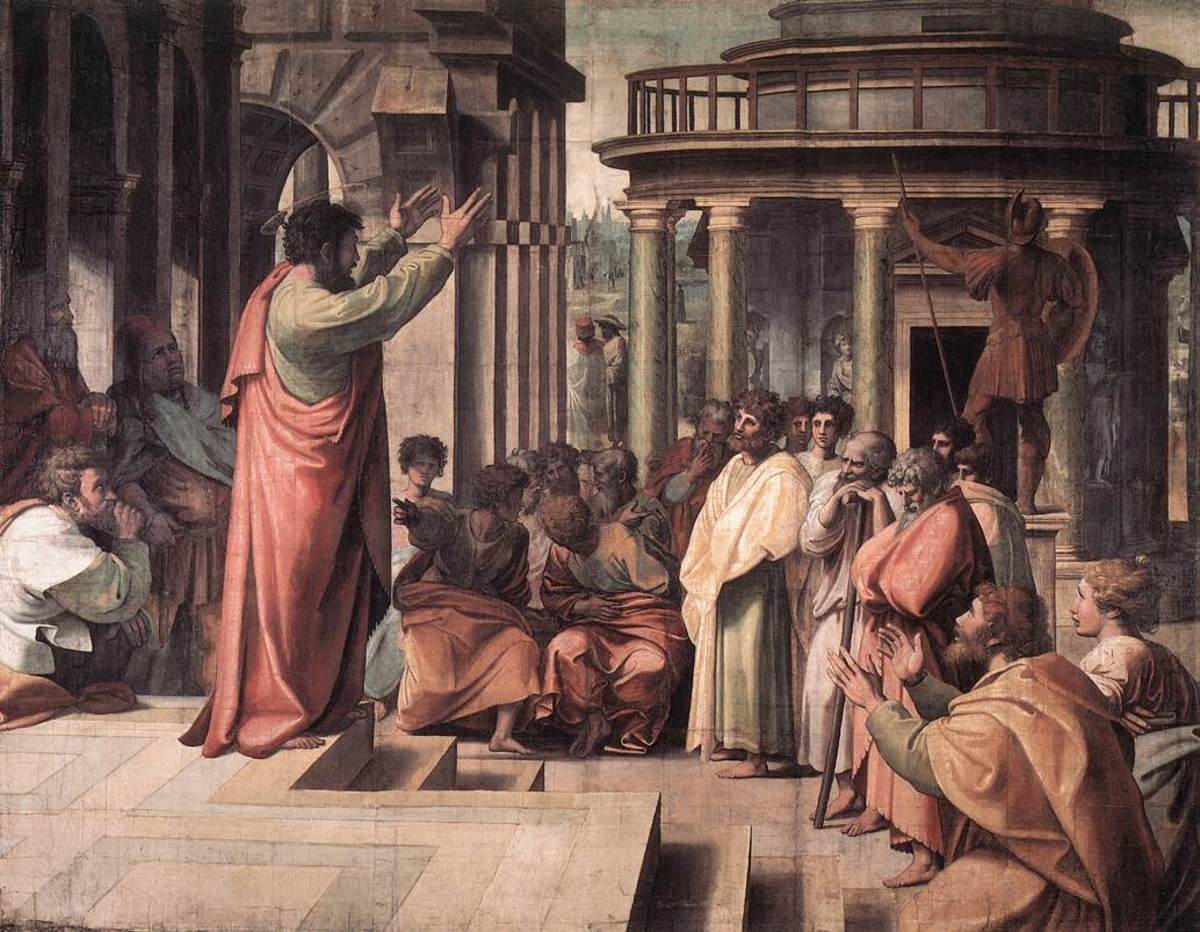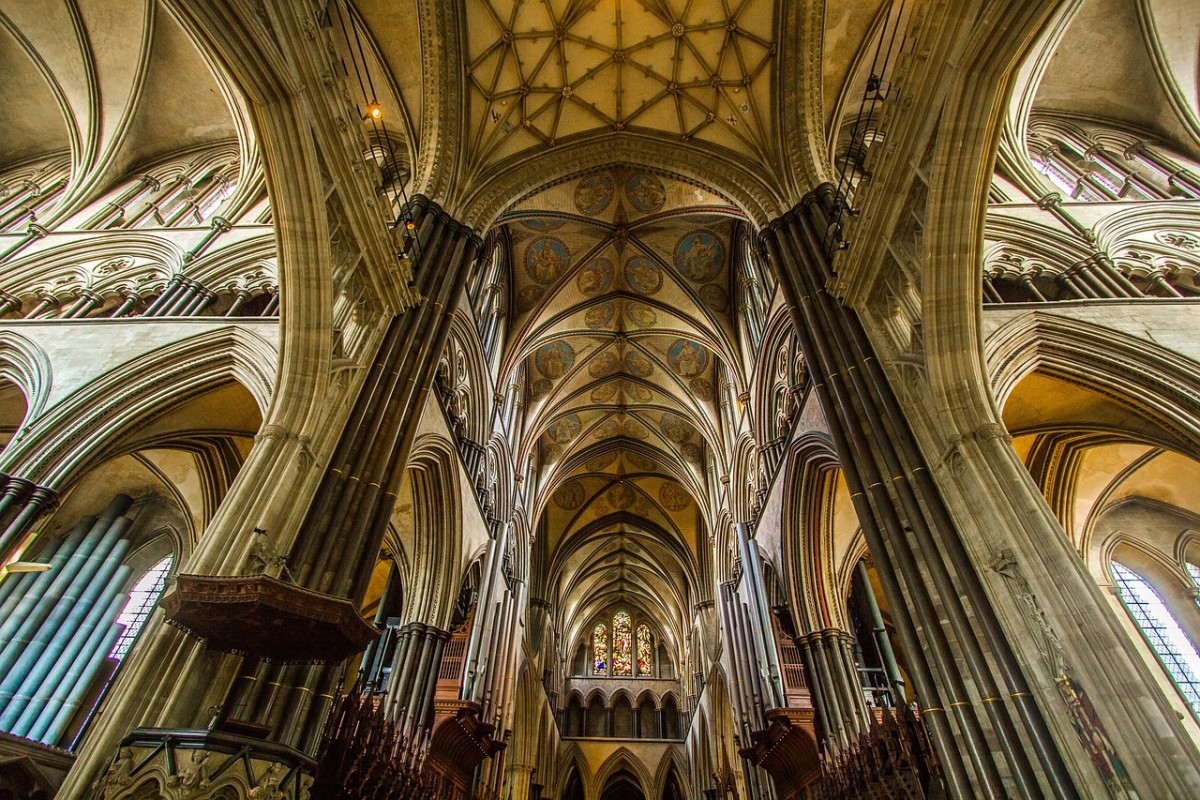Easter is Upon Us

Christ Was Reborn in Spirit and Lives in His Followers Who Worship
Easter will soon be upon us. This day commemorates the greatest event that has ever happened for mankind. It commemorates the day Jesus rose from the dead. Christianity was born. As Jesus rose from the dead, so too do Christians rise from the deadness of material existence to be reborn into a life of spirituality; in His church. Christians become the body of Christ. He lives on: body, mind, spirit, and consciousness; through His faithful followers.
Questioning disbelievers ask, “How can you say Christ was raised from the dead? What proof do you have?” For one thing, the Bible states he was seen alive by the twelve then by a multitude of five hundred. And, as believers, we believe he rose bodily, ascending into heaven almost like a time traveler called back to his place in the future. And we believe we will see Him in the future at the end time.
But, let the disbeliever win his argument about the impossibility of being raised physically from the dead. What can’t be disputed, however, is that Christ was reborn in spirit, and continues on, alive, as long as believers come together to worship. Jesus showed how to enter with Him into spiritual communion. He prepared and offered to the assembled - His body in the form of bread; and His blood in the form of wine. He is indeed declaring: you are what you eat; that he and the assembled are now the body of Christ transfigured in communion with the mind and spirit of Christ.
What fuses life into the body and mind? The blood is a metaphor for the spirit, the boundary or connection between mind and body. Followers then transcend their earthly presence – they are collectively body and mind with the spirit of Jesus – in an almost ecstatic state. Their communal consciousness becomes the resurrected consciousness of Jesus.
Christianity is a Living Religion Active with Prophesy and Revelation
I have an old friend in his eighties who has studied the Bible all his life. When I was talking to him recently he became very excited about Jesus speaking to us through our communal consciousness. I’d said we make prophesy , talk to and of Jesus and he talks to us. The old friend wanted to know something Jesus had said, “Tell me something He’s said.” The answer is that Jesus doesn’t just pop up and say, “This is Jesus; and giada, giada, giada!” No, you have to listen between the lines of what’s being said and discern for yourself from your own frame of reference. But one thing Jesus seems always to be repeating is gracious kindness, non-judgmental acceptance, and unwavering respect for the entire family of Christian followers.
Jesus is our redeemer and salvation. We, in turn, in a way, are his savior. We keep him alive here on earth; body, mind, and spirit in our collective consciousness. We are saved in His spirit. The entire New Testament was written to show us the way to salvation. But what of those who came before Jesus? They were saved through faith, sacrifice, and adherence to the laws of Moses. We’ve spoken of Samson; when the spirit was with him, he was indestructible; when it was gone he was like a dishrag.
So the spirit existed but was never practiced as a way of life. This was exclusively a gift and commandment of Jesus; that we allow the spirit to come down on us and live in grace. Are there other religions that live in the spirit?
Buddhists keep the mind of Buddha alive through his teachings, but are ill-disposed to worship him as a deity, he didn’t want it. They worship him not as a god but as a way to render respect. Muslims worship almighty God, and demand that Muhammad never be worshiped as God, as he is only a messenger of God. Hindu believe in a triune god Brahman who became re-born as Krishna; his forms are Brahma, Vishnu, and Shiva. But they also have a triune female god and many other personal gods worshiped as dispensation favor-granting deities. None of these religions is capable of discharging revelations, new tenants of God’s moves. They are living religions, but with stagnant doctrine.
Jesus Restored Us into Fellowship With God
Buddhism and Hinduism encourage transcendent states similar to what we may feel when caught-up in the spirit with Jesus and the followers we call saints. But those religions pursue transcendental states for the purpose of mindful relaxation, meditation, and re-centering of the being.
Some say that Jesus was influenced by the Asian religions, especially Buddhism. This was probably not the case. Had he come under the influence of its precepts, his words to the disciples at the last supper would likely have been decidedly different: “Brethren, close your eyes, relax your mind, and become one with universal and serene triune God. Set aside secular, worldly concerns. Be forgiving and accepting – set aside annoyances and perceived slights. Feel your connection to all things in the infinite flow of time and space. See your self centered in a universe of compassion and grace. Recognize the creator . . . recognize my eternal presence in you; mind, body, spirit, and consciousness.”
Or maybe not! Jesus chose rather the dance of metaphors we see practiced in the modus operandi of the Catholic mass. He chose the consecration, the bread, the wine, the communion, and spiritual fellowship. But for Jesus and his followers the fellowship wasn’t just symbolic. It was real, penetrating, visceral, and ecstatic.
Jesus’ death on the cross redeemed us from the damning consequences of sin. His resurrection restored again to Christians the fellowship with God known to Adam and Eve. He desired this communion with us so much that he was willing to die for it. In doing so we are shepherd into the holy of hollies, the sanctuary of his divine presence.








